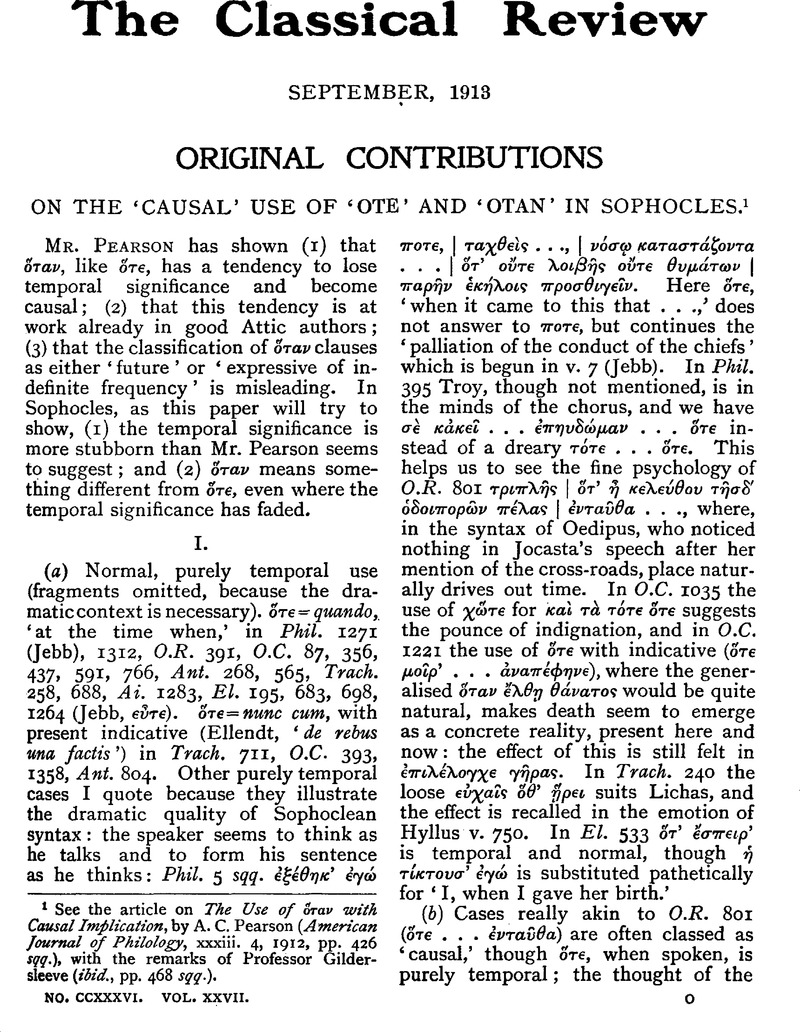No CrossRef data available.
Published online by Cambridge University Press: 27 October 2009

page 188 note 1 This is the explanation of Professor Hale's instances, where the ‘identification’ of two ‘acts’ is asserted. The formula ![]() is correct in argument, where the point is ‘A implies B.’ Greek says ‘a making (by you) of statement A implies a corresponding making by you of statement B.’ Further, the use of
is correct in argument, where the point is ‘A implies B.’ Greek says ‘a making (by you) of statement A implies a corresponding making by you of statement B.’ Further, the use of ![]() in introducing quotations is often quite correct. In Aesch. I. 128 ὅταν generalises (‘this statement by Euripides implies …’). The instances in Plato Ion. 538B, c, are like Phil. 451 (‘when we have Homer saying …’). In Rep. 383A, though ὅταν can hardly be said to generalise, the future
in introducing quotations is often quite correct. In Aesch. I. 128 ὅταν generalises (‘this statement by Euripides implies …’). The instances in Plato Ion. 538B, c, are like Phil. 451 (‘when we have Homer saying …’). In Rep. 383A, though ὅταν can hardly be said to generalise, the future ![]() helps. This example, however, and Rep. 339E show that ὅταν is losing its force.
helps. This example, however, and Rep. 339E show that ὅταν is losing its force.